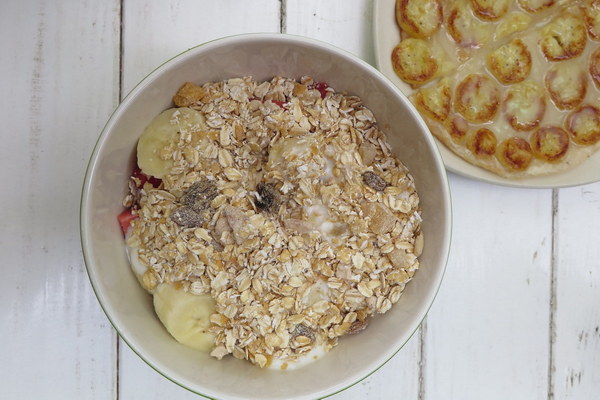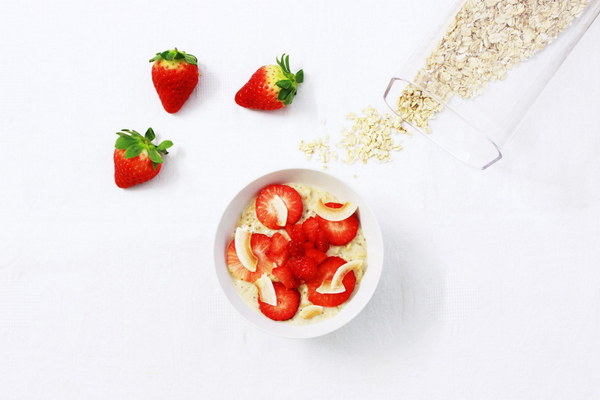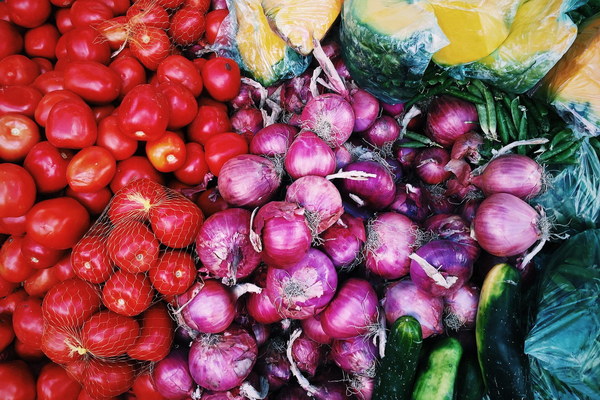The Myth of Porridge and Noodles Why They Dont Always Nourish Your Stomach
In the realm of culinary remedies, porridge and noodles are often hailed as the saviors for those seeking a soothing stomach. The belief is that these comforting dishes can alleviate digestive issues and provide nourishment to the stomach. However, the truth behind the myth of porridge and noodles as stomach-soothing superfoods may surprise you. In this article, we delve into why drinking porridge and eating noodles doesn't always guarantee a healthy stomach.
Firstly, let's address the common misconception that porridge is a stomach-soothing dish. While it's true that porridge is gentle on the stomach, its effectiveness in healing digestive issues is questionable. The key to a healthy stomach lies not only in the type of food we consume but also in the balance and variety of nutrients we provide to our digestive system.
Porridge is typically made from grains such as rice, oats, or wheat, which are easily digestible. However, these grains are also low in fiber and protein. Fiber is crucial for maintaining gut health, while protein aids in the repair and growth of stomach lining. By relying solely on porridge, you may be missing out on these essential nutrients, which are vital for a healthy stomach.
Similarly, noodles, whether they are made from wheat, rice, or another grain, are also low in fiber and protein. While they can provide a quick source of energy, they do not possess the digestive-healing properties that many believe. In fact, consuming excessive amounts of noodles can lead to bloating, indigestion, and other digestive discomforts.
So, if porridge and noodles aren't the stomach-soothing superfoods we've been led to believe, what should we eat? Here are some tips to help you maintain a healthy stomach:
1. Incorporate a variety of foods into your diet: A balanced diet rich in fruits, vegetables, lean proteins, whole grains, and healthy fats is essential for a healthy stomach. This ensures that you receive a wide range of nutrients necessary for optimal digestive function.
2. Focus on fiber: Foods high in fiber, such as legumes, whole grains, fruits, and vegetables, can help improve gut health by promoting regular bowel movements and reducing the risk of constipation and diverticulosis.
3. Choose complex carbohydrates: Instead of consuming simple carbohydrates like white bread and pasta, opt for complex carbohydrates such as brown rice, quinoa, and whole grain bread. These foods provide sustained energy and help maintain blood sugar levels.
4. Eat probiotic-rich foods: Probiotics are beneficial bacteria that reside in your gut and play a crucial role in digestion. Foods high in probiotics, such as yogurt, kefir, sauerkraut, and kimchi, can help maintain a healthy gut flora.
5. Stay hydrated: Drinking plenty of water is essential for proper digestion. It helps to break down food, absorb nutrients, and eliminate waste products from the body.

6. Manage stress: Stress can have a significant impact on your digestive health. Techniques such as meditation, deep breathing exercises, and yoga can help reduce stress levels and promote a healthy stomach.
In conclusion, while porridge and noodles may be comforting and gentle on the stomach, they are not the ultimate solution for digestive health. A balanced diet rich in a variety of nutrients, fiber, and probiotics is essential for maintaining a healthy stomach. So, the next time you're seeking a stomach-soothing remedy, consider incorporating these tips into your diet rather than relying on the myth of porridge and noodles.









